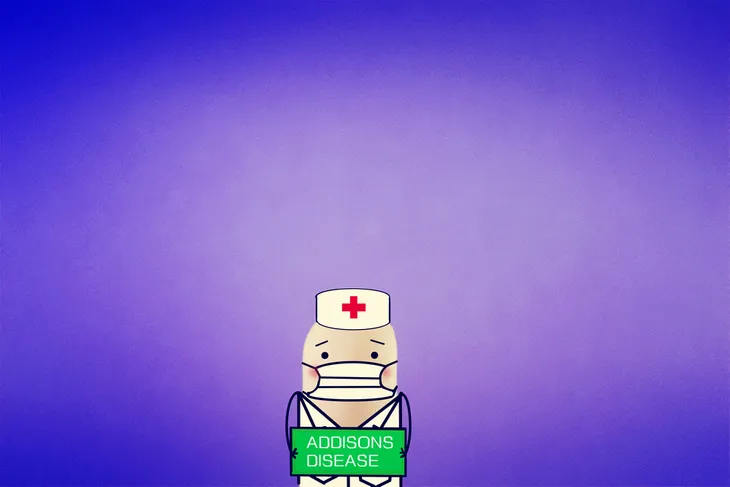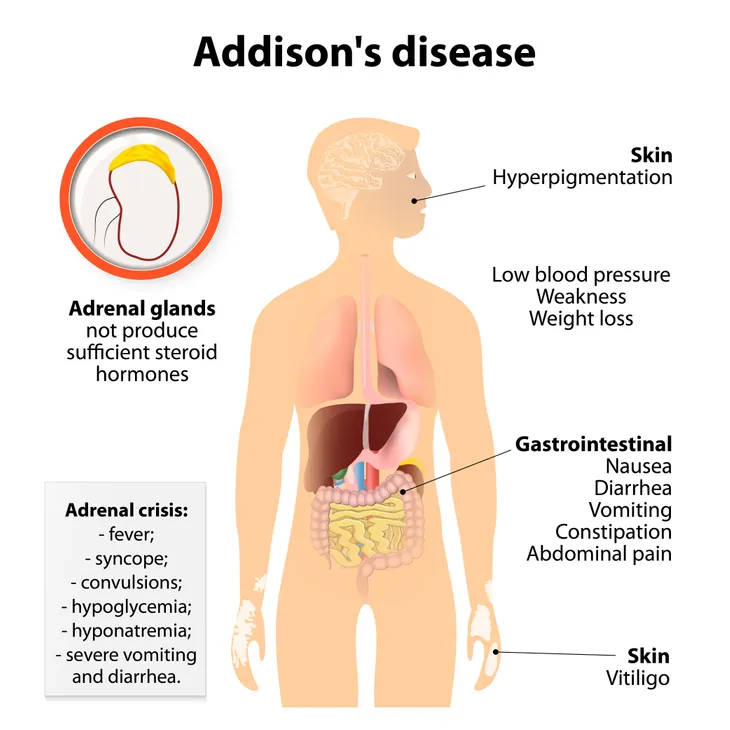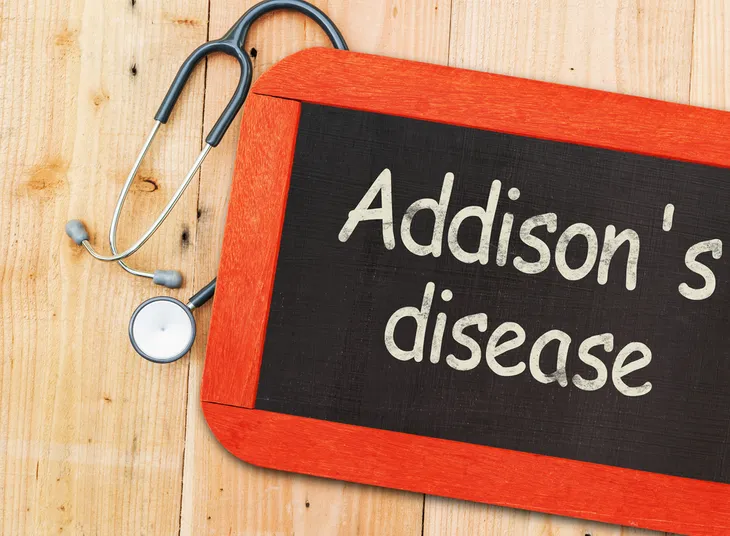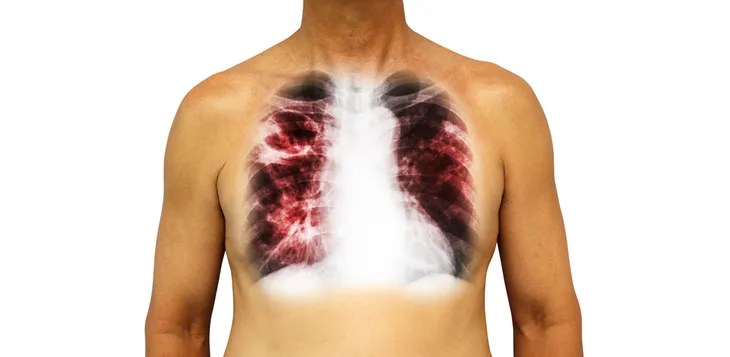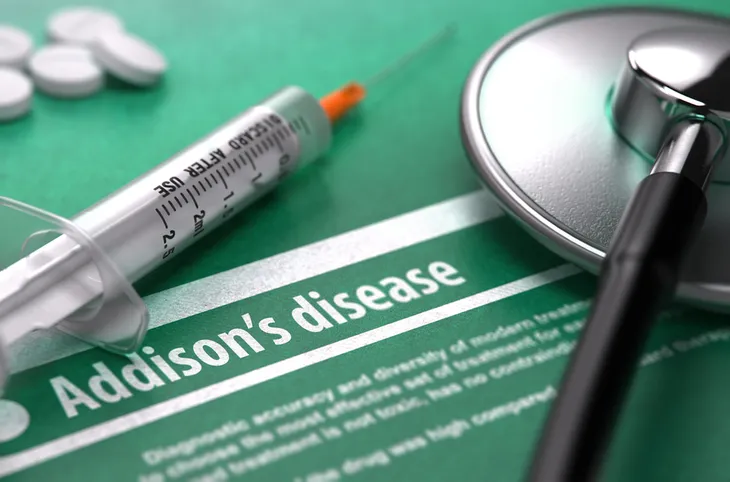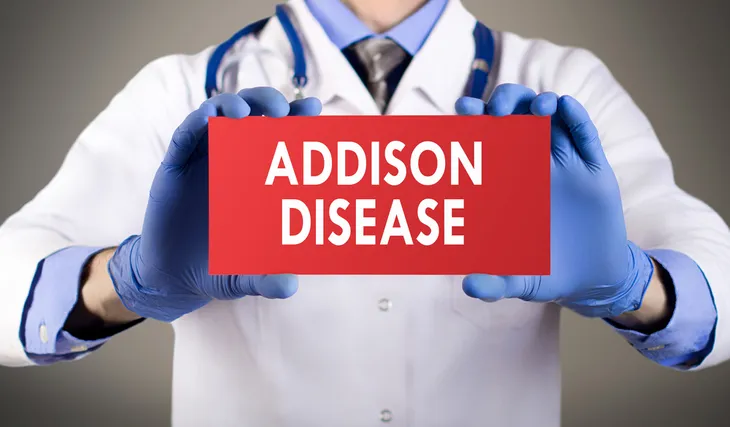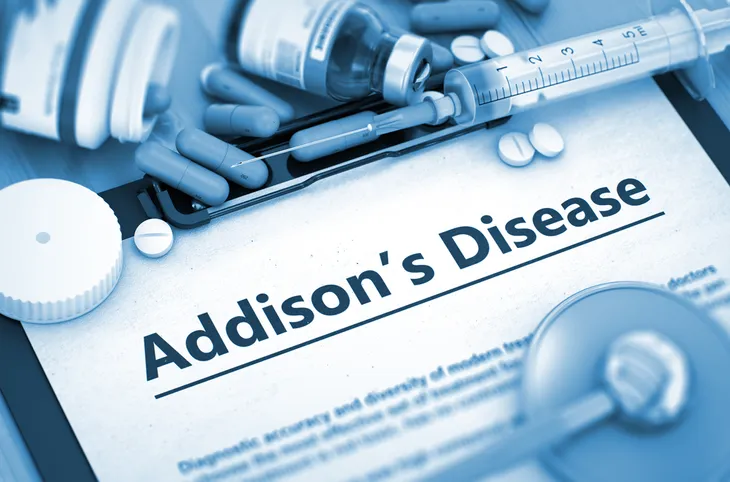You may have never heard of Addison’s disease, and if that’s the case, you probably also don’t know that late president John F. Kennedy suffered from it.
But what is Addison’s disease? The Los Angeles Times, which also talks about the late president’s battle with the disease, calls it the “withering of the adrenal glands” which leads to other health problems. Let’s take a look at 12 other facts about it…
It’s a Hormonal Disorder
The Canadian Addison Society explains this disease affects only about one person per 100,000, but happens at all age levels in males and females.
The source explains it’s caused primarily by an autoimmune reaction, and is characterized by adrenal insufficiency – when your adrenal glands are underperforming. Hormones including cortisol and (sometimes) aldosterone drop off, which has a big impact on overall health.
It Impacts How You Handle Stress
Cortisol is commonly known as the “stress hormone,” but as MedicineNet.com points out, it may have hundreds of functions in the body. “Cortisol’s most important job is to help the body respond to stress,” it adds.
Other vital tasks of cortisol include maintaining blood pressure and heart function, slowing inflammation from immune responses, and helps regulate metabolism, adds the source. Meanwhile, aldosterone is a steroid hormone, which is essential for conserving sodium in the kidneys and sweat glands (which is why one symptom of Addison’s is craving salt).
Symptoms Usually Come on Slowly
The Mayo Clinic explains that the symptoms of this disease usually build gradually, “often over several months.” The symptoms can be confused for another problem in the early stages, and they can vary case by case.
These telltale signs include fatigue, weight loss, nausea, and joint pain, which can all point to their own causes. However, in some cases there are other symptoms (which we’ll get to next) that can help differentiate this disease from other culprits.
Mood Changes Can Occur
The Mayo Clinic said while there are many possible physical symptoms – including abdominal pain, low blood pressure, and body hair loss – there are some possible psychological impacts as well.
In particular, the disease can cause depression, as well as irritability, it explains. Again, depression can be from another cause. The clinic says to see your doctor if you have darkening areas of skin, severe fatigue, unintentional weight loss, or feel lightheaded.
Cases Can Be Acute
While we’ve already mentioned that most cases tend to develop slowly, in some cases it can happen fast and result in a crisis – acute adrenal crisis, to be more specific.
Healthline also calls this an “Addisonian crisis,” which can occur when someone who doesn’t have properly functioning adrenal glands encounters a very stressful situation. This crisis can be medically treated, but if it’s not, it can lead to seizures, coma, or even death, it explains.
It Can Be Very Painful
Pituitary.org notes that many patients don’t know they have Addison’s until they have an acute attack, and when this happens there can be a great deal of pain involved.
The source says symptoms of a crisis mentioned earlier can include “sudden penetrating pain in the lower back, abdomen, or legs,” which can also lead to severe vomiting, low blood pressure, and loss of consciousness. As we noted, those in crisis that are untreated can die (although sources note there’s an emergency injection available).
Tuberculosis Can Trigger It
While most cases of Addison’s are due to an autoimmune disease – when the body attacks its own organs and tissues – there’s another possible cause that accounts for about 20-percent of cases of adrenal insufficiency in the developed world, notes MedicineNet.com.
This additional cause is tuberculosis, which is an infection that can destroy the adrenal glands, it notes. Luckily, tuberculosis has been in sharp decline in the developed world for decades thanks to drugs and other factors.
There are ‘Secondary Causes’
WebMD explains that adrenal glands can be affected by what’s called “secondary adrenal insufficiency,” which is actually a problem with the pituitary gland or hypothalamus, both located in the brain.
These glands produce hormones that “act as a switch,” and can turn the production of other hormones on and off, it adds. WebMD explains a hormone from the pituitary gland called ACTH is the trigger for cortisol production in the adrenal glands – “If ACTH levels are too low, the adrenal glands stay in the off position,” it explains.
It Can Make Teeth Look Whiter
Here’s a strange fact about Addison’s – it can make your teeth appear to be whiter, according to Prevention. This may seem like a positive, but not when you factor in the other potentially life-threatening symptoms of the disease.
However, what’s actually happening is not a magical whitening of the teeth – it’s the darkening of the skin like a tan, even when the patient hasn’t been to a sunny location. This darkening of the skin from hormonal shifts is perhaps the biggest telltale symptom of Addison’s, it adds.
It Can Cause ‘Brain Fog’
Many patients of Addison’s complain of being confused or being in a “fog,” although there doesn’t seem to be too much solid evidence of this symptom or how to address it around the web.
Theories from patients include cortisol levels being too low (or too high in some cases) and interfering with proper thoughts. At least one source (Hindawi.com) explains that although depression is a common disorder of adrenal insufficiency, it can also in some cases cause psychosis, delirium, and memory loss.
Patients Need to Prepare for Exercise
In addition to taking your regularly prescribed medications, people with Addison’s disease will also need to increase their salt intake before exercise. The body’s aldosterone deficiency causes your kidneys to excrete larger than normal amounts of potassium and sodium.
Having too low of either electrolyte is dangerous. When sodium levels drop and a person is exercising they can become dangerously dehydrated. By increasing their sodium intake, a person with Addison’s can avoid this dangerous scenario and safely exercise.
There are Medical Treatments
The NHS in the UK explains that in order to function from day-to-day, Addison’s patients are required to take daily medication that is meant to replace lost hormones. “This should help you to live an active life, although many people find they still need to manage their fatigue,” it adds.
Treatments can also include addressing the underlying cause if it’s tuberculosis (antibiotics are prescribed) or another condition, it adds. However, in most cases it’s an autoimmune issue “that can’t be cured,” says the NHS.

